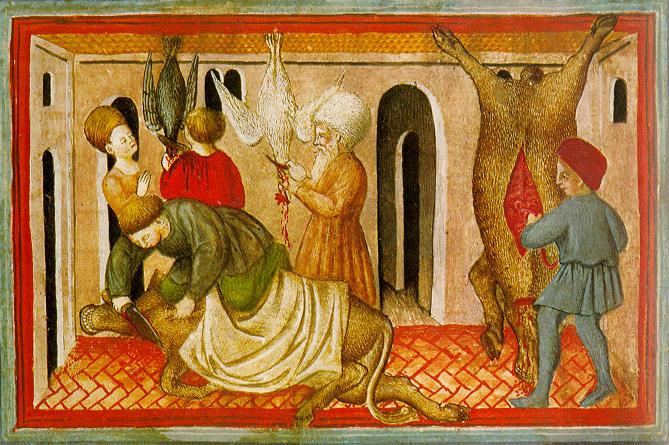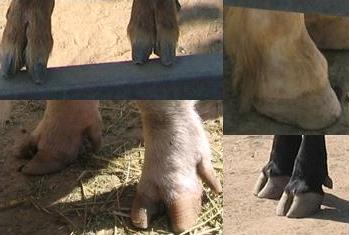|
Central Rabbinical Congress
The Central Rabbinical Congress (in full: Central Rabbinical Congress of the US and Canada, commonly abbreviated to CRC; he, התאחדות הרבנים דארצות הברית וקנדא, Hisachdus HaRabbonim DeArtzos HaBris VeCanada) is a rabbinical organization that is a consortium of various Haredi Jewish groups, with offices in Brooklyn, New York. History In the aftermath of World War II, when thousands of Jewish survivors arrived in the United States and began the process of rebuilding the dozens of communities which were decimated in the Holocaust, this organization was founded in 1953, with the stated goal of serving as an umbrella rabbinical body to unite the newly transplanted Haredi communities, and to provide said communities with all of their religious needs. The organization was founded by the rebbe of Satmar, Rabbi Joel Teitelbaum, alongside Rabbi Levi Yitzchok Greenwald of Tzehlim, Rabbi Yosef Greenwald of Pupa, Rabbi Shimon Yisroel Posen of Shopron, Rabbi Y ... [...More Info...] [...Related Items...] OR: [Wikipedia] [Google] [Baidu] |
Central Rabbinical Congress Of USA And Canada (emblem)
Central is an adjective usually referring to being in the center of some place or (mathematical) object. Central may also refer to: Directions and generalised locations * Central Africa, a region in the centre of Africa continent, also known as Middle Africa * Central America, a region in the centre of America continent * Central Asia, a region in the centre of Eurasian continent * Central Australia, a region of the Australian continent * Central Belt, an area in the centre of Scotland * Central Europe, a region of the European continent * Central London, the centre of London * Central Region (other) * Central United States, a region of the United States of America Specific locations Countries * Central African Republic, a country in Africa States and provinces * Blue Nile (state) or Central, a state in Sudan * Central Department, Paraguay * Central Province (Kenya) * Central Province (Papua New Guinea) * Central Province (Solomon Islands) * Central Province, Sri L ... [...More Info...] [...Related Items...] OR: [Wikipedia] [Google] [Baidu] |
Moshe Teitelbaum (Satmar)
Moshe (Moses) Teitelbaum (Yiddish: משה טײטלבױם; November 1, 1914 – April 24, 2006) was a Hasidic rebbe and the world leader of the Satmar Hasidim. Early life Moshe Teitelbaum was born on November 17, 1914, in Újfehértó, Hungary. He was the second son of Rabbi Chaim Tzvi Teitelbaum, author of ''Atzei Chaim'', the previous Sigheter Rebbe. His mother, Bracha Sima, hailed from the prominent Halbershtam family. Moshe and his older brother, Yekusiel Yehuda Teitelbaum, were orphaned in 1926, when they were eleven and fourteen, respectively. Moshe was raised by family friends and relatives, including his uncle, Joel Teitelbaum, and his grandfather, Rabbi Shulem Eliezer Halberstam of Ratzfert.פתגמין קדישין תכ"ג Teitelbaum received rabbinical Ordination, and was appointed dean of the Karacscka yeshiva. In 1936, Teitelbaum married Leah Meir, daughter of Rabbi Hanoch Heinoch Meir of Karecska. In 1939, he became the rabbi of Senta, Yugoslavia (now Serbi ... [...More Info...] [...Related Items...] OR: [Wikipedia] [Google] [Baidu] |
Shechita
In Judaism, ''shechita'' (anglicized: ; he, ; ; also transliterated ''shehitah, shechitah, shehita'') is slaughtering of certain mammals and birds for food according to ''kashrut''. Sources states that sheep and cattle should be slaughtered "as I have instructed you", but nowhere in the Torah are any of the practices of ''shechita'' described. Instead, they have been handed down in Rabbinic Judaism's Oral Torah, and codified in ''halakha''. Species The animal must be of a permitted species. For mammals, this is restricted to ruminants which have split hooves. For birds, although biblically any species of bird not specifically excluded in would be permitted, doubts as to the identity and scope of the species on the biblical list led to rabbinical law permitting only birds with a tradition of being permissible. Fish do not require kosher slaughter to be considered kosher, but are subject to other laws found in which determine whether or not they are kosher (having both ... [...More Info...] [...Related Items...] OR: [Wikipedia] [Google] [Baidu] |
Hechsher
A hechsher (; he, הֶכְשֵׁר "prior approval"; plural: ''hechsherim'') is a rabbinical product certification, qualifying items (usually foods) that conform to the requirements of halakha. Forms A hechsher may be a printed and signed certificate displayed at a commercial venue or on a media advertisement advising the consumer that the subjected product is kosher. Such certificates usually display the name of the rabbinical court issuing the hechsher, the name of the business or product, date of issue, expiry date and stamp of rabbi who issued the certificate. It may also be a certification marking on individual retail packaging of items which have been certified as Kosher. This marking is usually a basic stamp or emblem indicating the issuing rabbinical court. Modern hechsherim display sophisticated holograms and seals which are hard to forge. Types A hechsher is typically issued for food products, and is also issued on non-food items which come in contact with foods, such ... [...More Info...] [...Related Items...] OR: [Wikipedia] [Google] [Baidu] |
Food Industry
The food industry is a complex, global network of diverse businesses that supplies most of the food consumed by the world's population. The food industry today has become highly diversified, with manufacturing ranging from small, traditional, family-run activities that are highly labor-intensive, to large, capital-intensive and highly mechanized industrial processes. Many food industries depend almost entirely on local agriculture, produce, or fishing. It is challenging to find an inclusive way to cover all aspects of food production and sale. The UK Food Standards Agency describes it as "the whole food industry – from farming and food production, packaging and distribution, to retail and catering." The Economic Research Service of the USDA uses the term ''food system'' to describe the same thing, stating: "The U.S. food system is a complex network of farmers and the industries that link to them. Those links include makers of farm equipment and chemicals as well as firms ... [...More Info...] [...Related Items...] OR: [Wikipedia] [Google] [Baidu] |
Kosher Certification Agency
A kosher certification agency is an organization or certifying authority that grants a ''hechsher'' ( he, הכשר, "seal of approval") to ingredients, packaged foods, beverages, and certain materials, as well as food-service providers and facilities in which kosher food is prepared or served. This certification verifies that the ingredients, production process including all machinery, and/or food-service process complies with the standards of '' kashrut'' (Jewish dietary law) as stipulated in the ''Shulchan Arukh'', the benchmark of religious Jewish law. The certification agency employs ''mashgichim'' (rabbinic field representatives) to make periodic site visits and oversee the food-production or food-service process in order to verify ongoing compliance. Each agency has its own trademarked symbol that it allows manufacturers and food-service providers to display on their products or in-store certificates; use of this symbol can be revoked for non-compliance. Each agency typically h ... [...More Info...] [...Related Items...] OR: [Wikipedia] [Google] [Baidu] |
Beth Din
A beit din ( he, בית דין, Bet Din, house of judgment, , Ashkenazic: ''beis din'', plural: batei din) is a rabbinical court of Judaism. In ancient times, it was the building block of the legal system in the Biblical Land of Israel. Today, it is invested with legal powers in a number of religious matters (''din Torah'', "matter of litigation", plural ''dinei Torah'') both in Israel and in Jewish communities in the Diaspora, where its judgments hold varying degrees of authority (depending upon the jurisdiction and subject matter) in matters specifically related to Jewish religious life. History Rabbinical commentators point out that the first suggestion in the Torah that the ruler divest his legal powers and delegate his power of judgment to lower courts was made by Jethro to Moses (Exodus ). This situation was formalised later when God gave the explicit command to "establish judges and officers in your gates" ( Deuteronomy ). There were three types of courts (Mishnah, trac ... [...More Info...] [...Related Items...] OR: [Wikipedia] [Google] [Baidu] |
Kashrus
(also or , ) is a set of dietary laws dealing with the foods that Jewish people are permitted to eat and how those foods must be prepared according to Jewish law. Food that may be consumed is deemed kosher ( in English, yi, כּשר), from the Ashkenazic pronunciation (KUHsher) of the Hebrew (), meaning "fit" (in this context: "fit for consumption"). Although the details of the laws of are numerous and complex, they rest on a few basic principles: * Only certain types of mammals, birds and fish meeting specific criteria are kosher; the consumption of the flesh of any animals that do not meet these criteria, such as pork, frogs, and shellfish, is forbidden. * Kosher mammals and birds must be slaughtered according to a process known as ; blood may never be consumed and must be removed from meat by a process of salting and soaking in water for the meat to be permissible for use. * Meat and meat derivatives may never be mixed with milk and milk derivatives: separate equipme ... [...More Info...] [...Related Items...] OR: [Wikipedia] [Google] [Baidu] |
Rapoport-Bick (rabbinic Dynasty)
The Rapoport-Bick dynasty was the most important of all the non-chasidic rabbinic dynasties of Medzhybizh, in Ukraine. The Rapoport dynasty traces its roots back to Rabbi Jacob Emden (1697–1776) who was involved in the Frankist debates of 1757 and his father Rabbi Tsvi Hirsh Ashkenazi, known as the ''Chacham Tsvi'' (1660–1718). The Rapoports themselves are a long distinguished rabbinic family that traces its roots back to Central Europe and Northern Italy in the 15th century. Here is a pedigree chart of the Rapoport lineage: ::*R. Yakov Moshe Kohen Rapa (15th century) ::*R. Abraham Menakhem Kohen Rapa ::*R. Gershon Kohen Rapa (b. 1538), Porto, Italy ::*R. Simcha Katz Rapa ::*R. Moses Jeremiah Katz Rapoport, rabbi in Vienna ::*R. Meir haKohen Rapoport (d. 1600), rabbi in Belz ::*R. Nakhman Rapoport (d. 1674), rabbi in Kamenets-Podolsky, Poznań, Dubno ::*R. Simkha haKohen Rapoport (d. 1717) ::*R. Khaim haKohen Rapoport (d. 1771), rabbi in Lviv ::*R. Arieh Leib Rapoport (d. 175 ... [...More Info...] [...Related Items...] OR: [Wikipedia] [Google] [Baidu] |




